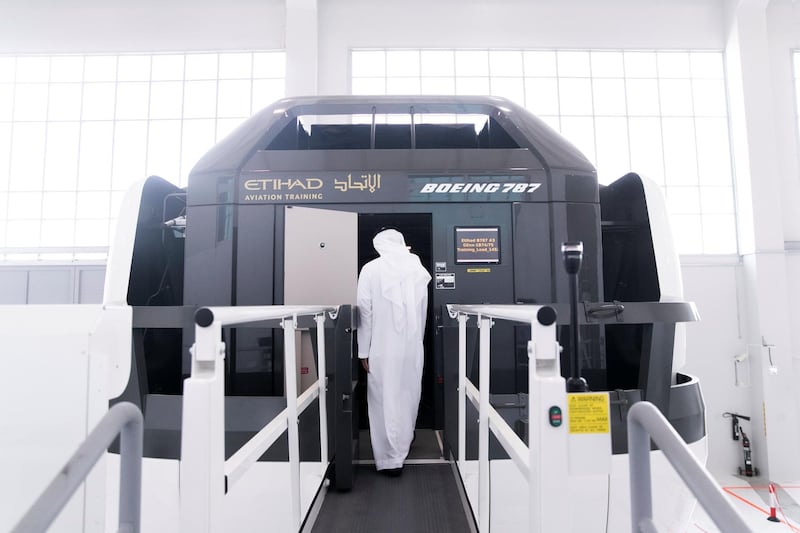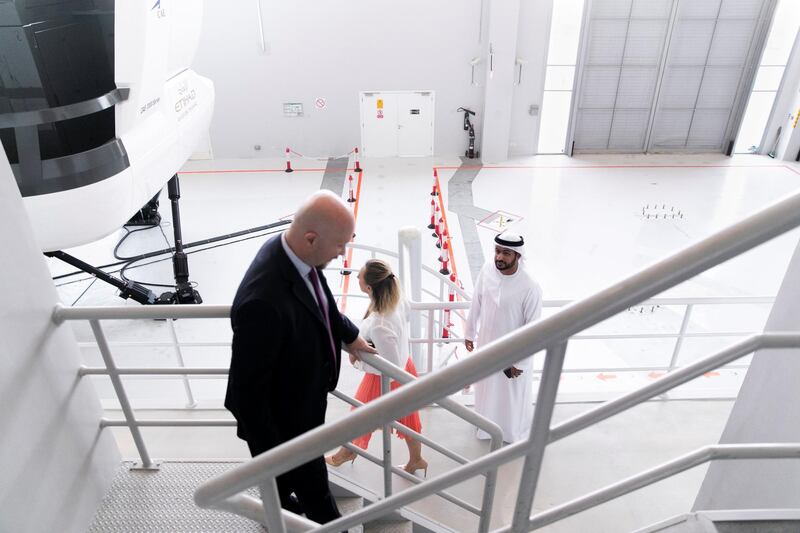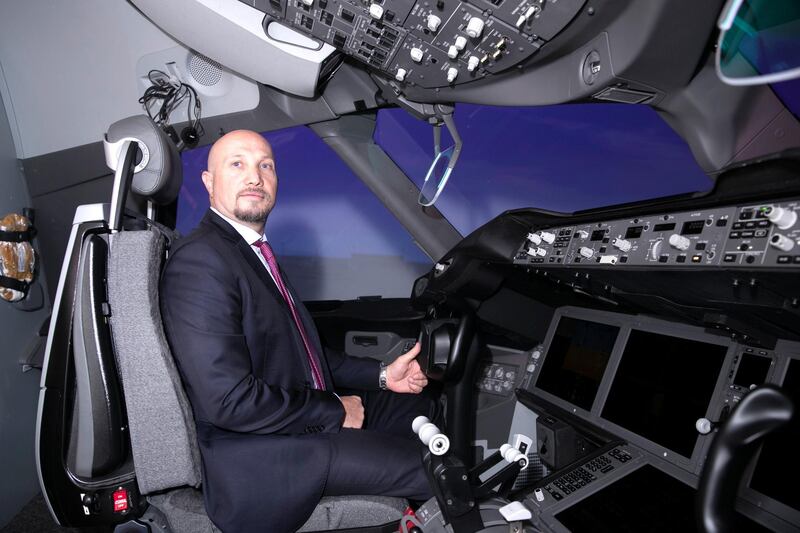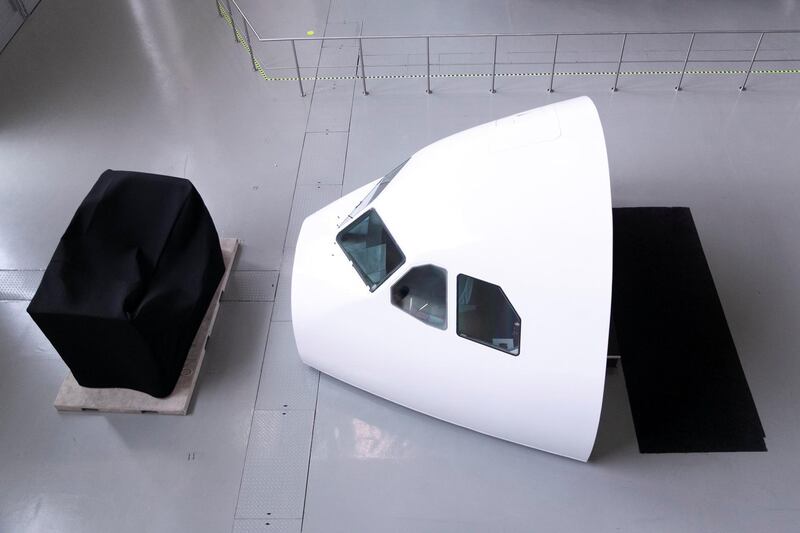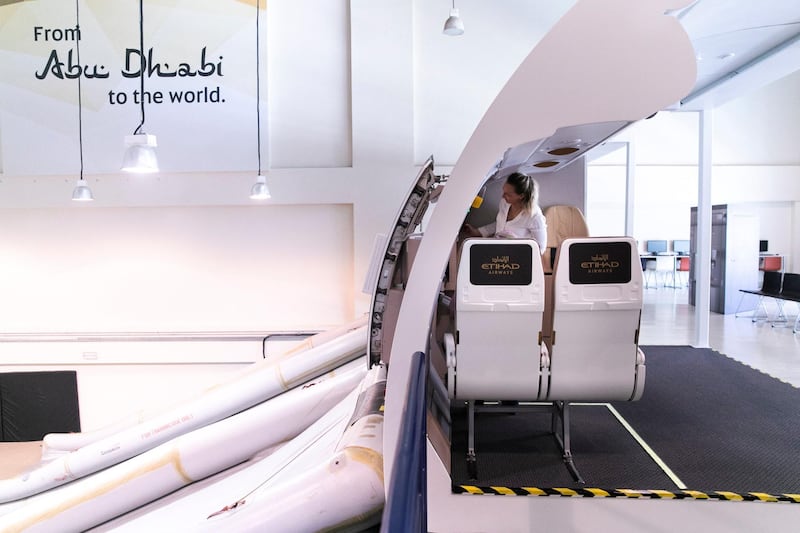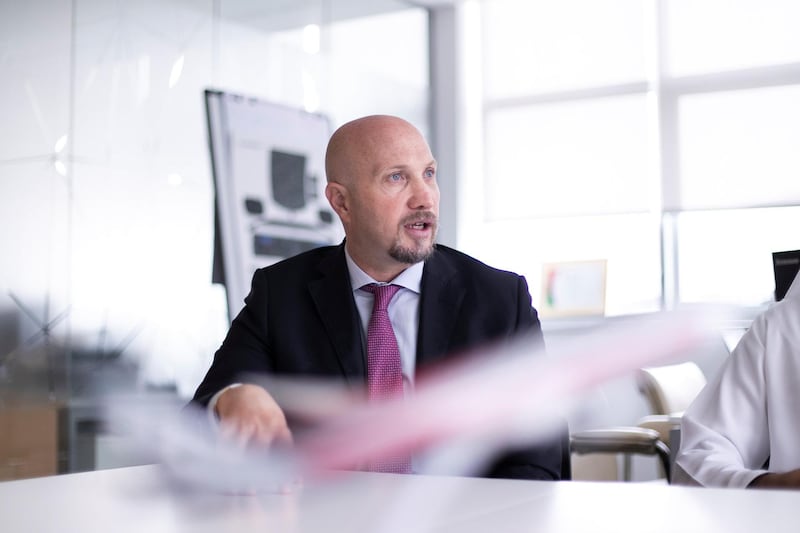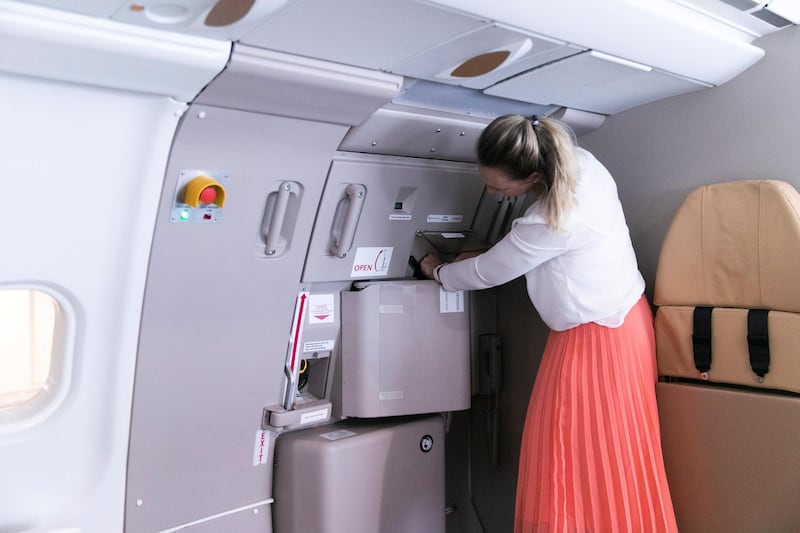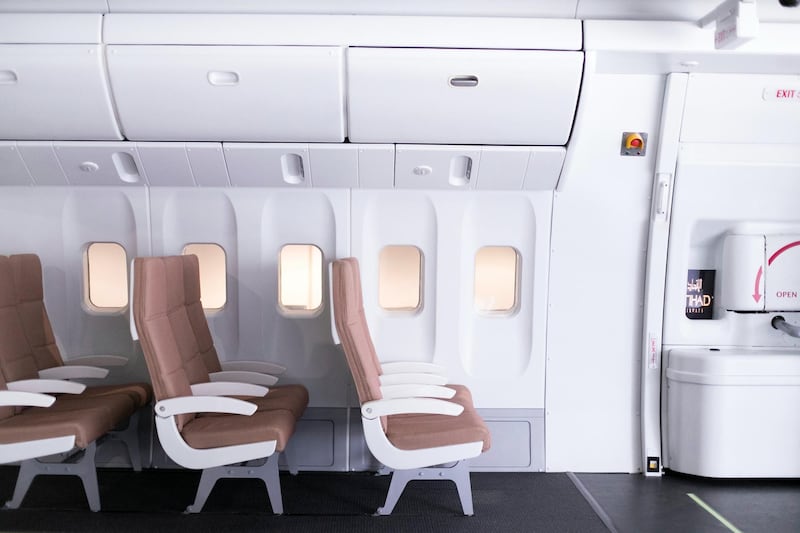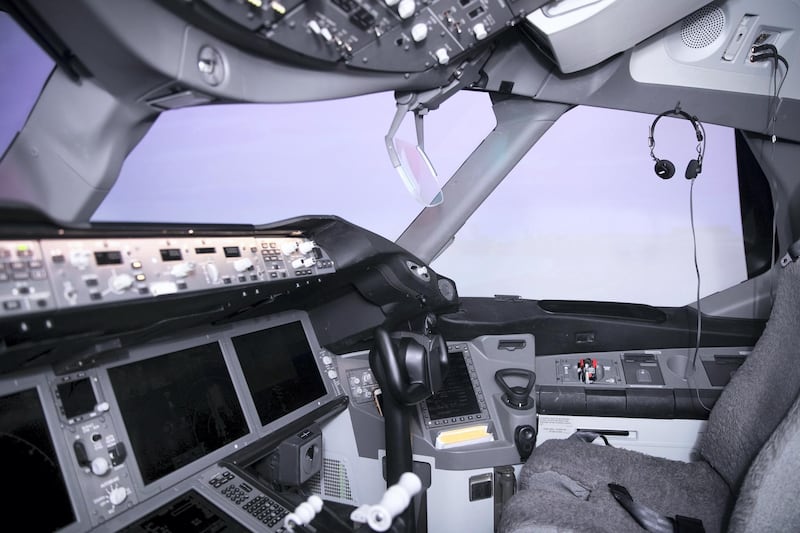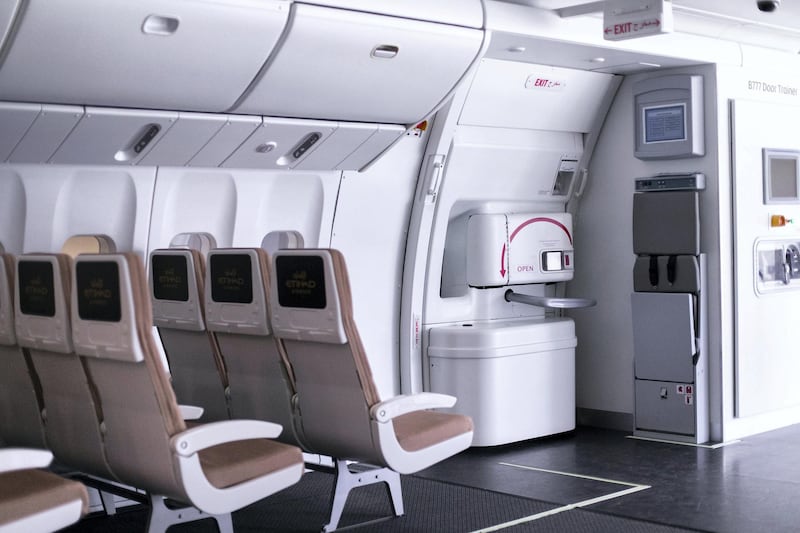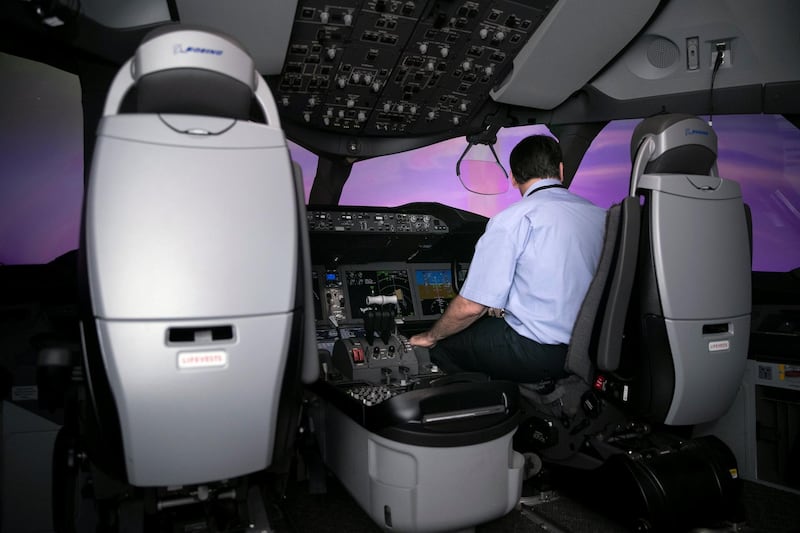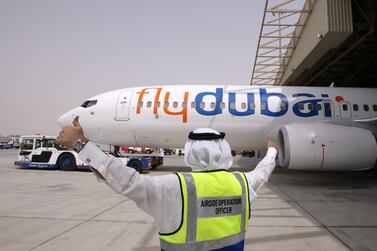Etihad Airways is expanding its pilot training programme to serve other airlines globally, opening a new revenue stream for the Abu Dhabi-based carrier as it pursues a turnaround plan to narrow losses.
Etihad won contracts from 40 clients, more than half of which are airlines including Dubai-based Emirates, since the third-party training division began a year ago, Captain Paolo La Cava, managing director of Etihad Aviation Training, told The National on Wednesday. It is also in talks with US and Chinese aviation regulators for approval to train their airlines' pilots, capitalising on demand in those major travel markets.
"It's part of the transformation that we started because we need to see what we have and what we can do best, this is one example," he said at Etihad's headquarters. "It's a good source of revenue because we have a fantastic return on assets ... I always say even one dollar makes a difference."
Etihad is working to maximise the value of its assets, in this case its state-of-the-art flight simulators and experienced pilots, as part of a turnaround plan to return to profitability. The carrier is undergoing a restructuring process that has entailed slashing unprofitable routes, trimming its aircraft orderbook and focusing on point-to-point routes while scrapping plans to invest in global airlines' stakes.
The carrier is seeing "incredible" demand for its Boeing and Airbus pilot training services, fuelled by a global shortage of pilots, incoming aircraft deliveries, growing air travel and expansion of low-cost operators, Mr La Cava said. In the first half of 2019, it exceeded its revenue targets by 30 per cent after meeting its annual target in 2018.
That growth spurt is reflected in US plane maker Boeing's forecast that 804,000 new civil aviation pilots will be needed to fly the global fleet of aircraft over the next 20 years, up from 790,000 pilots in its previous forecast, its Pilot & Technician Outlook 2019-2038 report shows.
Etihad Aviation Training, which is certified by the UAE's General Civil Aviation Authority and Europe Union Aviation Safety Agency, counts among its customers Emirates for Airbus A380 pilot training, Oman Air and Bahrain's Gulf Air. It also serves India's aviation services firm Elite Blue Global and Sharjah's Alpha Aviation, managed by Air Arabia.
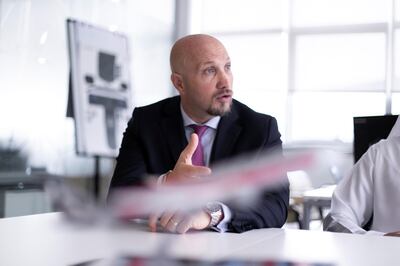
The most popular aircraft types for training are the Airbus A320-family narrowbodies and Boeing's 787 Dreamliner, according to Mr La Cava.
The training division, part of Etihad Aviation Group, receives the biggest demand from clients in the Middle East, India and Europe for narrowbody jets, Mr La Cava said. Demand for training widebody pilots comes primarily from airlines in Asia, South America and Africa.
In the next two decades, Asia Pacific will lead global growth in demand for pilots, with a requirement for 266,000 new pilots, according to Boeing. North America will require 212,000, Europe 148,000, the Middle East 68,000, Latin America 54,000, Africa 29,000 and Russia/Central Asia 27,000.
Seeking to tap into this huge demand in Asia, Etihad is in early-stage talks with the Civil Aviation Administration of China for certification to train Chinese airlines' pilots, Mr La Cava said.
It is also in the midst of a certification process by the US Federal Aviation Administration (FAA) and expects approvals by 2020, he said.
Etihad Aviation Training, which has 160 instructors, boasts 10 full flight simulators for Boeing 787 and 777 and Airbus A320, A330, A340 and A380 aircraft with a new A350 simulator to be introduced in November. It also has 12 fixed-based Airbus and Boeing training devices. The simulators, which cost about $15 million each, are from global aviation training firm CAE.
Etihad's facility offers training for new pilots from so-called "ab initio" stage at its base in Al Ain where it has more than 100 cadet pilots and 22 training aircraft, including four Embraer Phenom 100 jets.
Mr La Cava said the simulators can be upgraded to adapt to the evolution of aircraft technology such as Airbus' new and longest-range narrowbody the A321 XLR.
In a Boeing 787 simulator the instructors - all Etihad pilots - demonstrate various weather conditions on take-off and landing, from foggy mornings to thunderstorms in the horizon, as the machine "soars" above Abu Dhabi's landmarks such as Sheikh Zayed Mosque and Ferrari World.
Abu Dhabi, which is focusing on developing its aviation sector to diversify away from oil, wants to export its aviation expertise.
"Etihad has 1,800 pilots, a lot of experience and a lot of instructors - so why don’t we maximise and optimise the utilisation of crew resources and use the same trainer to train other airlines?" Mr La Cava said.
"That’s the unique selling point we have.
